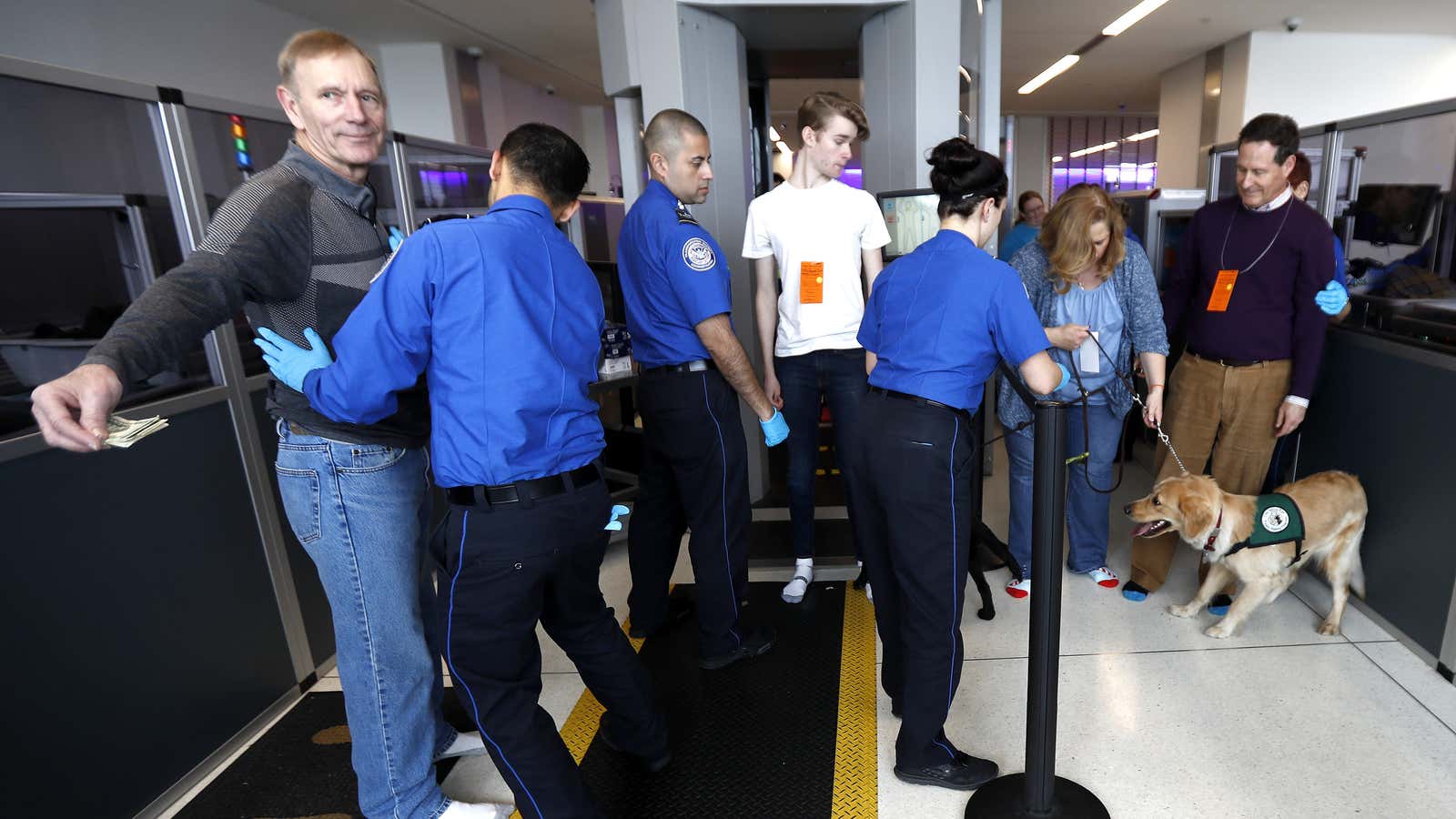A new round of possible vetting procedures is being examined by White House officials in the US, according to the Wall Street Journal, and they’re not going to make anyone happy.
After limiting the size of electronic devices that travelers headed to the US from 10 airports in the Middle East and North Africa can carry on an airplane, the Trump administration is now considering extending a new set of limitation to most foreigners, even if they are only headed to the US for a short visit.
In fact, the new rules could apply to the majority of visitors to the US, including those from countries in western Europe, Japan, and Australia that are currently enrolled in America’s more convenient visa waiver program.
According to Wall Street Journal interviews with officials involved in the potential regulation’s review process, the rules could include demanding travelers:
- share contacts on their mobile phones
- share social-media and email passwords
- give access to financial records
- answer questions about ideology
According to the Journal, under the proposed regulations visitors could be asked to hand their phones over to immigration officials, allowing airport authorities to view personal contacts and internet activity history. They’d also have to share access to their social media accounts if asked to by authorities. Allegedly, this kind of information could offer a glimpse into a traveler’s religious ideology, political affiliations, and friend network, ideally helping to identify potentially threatening individuals.
Further, instructions would be given to make the visa interview process more strict for a larger group of applicants not already subject to “extreme vetting” under Trump’s revised executive order from March. That order bans travel to the US to citizens from six Middle Eastern countries, and requires the rigorous vetting of people from those countries who are applying for visas. Most of the order has been suspended by a judge in Hawaii pending further judicial review.
